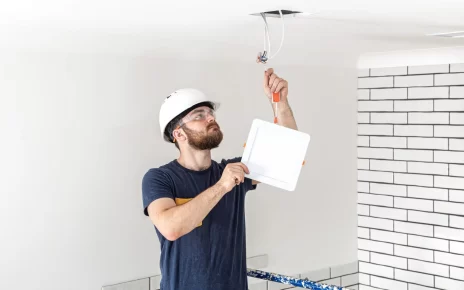Many homeowners in St. Louis use store-bought sprays, baits, or home remedies to address ant issues. These solutions may provide some relief, but they may not solve the deeper issue. Ant infestations are more complex than they appear. Trying to handle them without the right approach can lead to frustration.
Thankfully, Pointe Pest Control can offer thorough services and reliable results. They tailor their services to each home, starting with detailed inspections to find nests and entry points. Their treatments include immediate elimination and long-term prevention. Homeowners can choose one-time solutions or ongoing service plans that provide protection in every season. Below are reasons homeowners should not depend on DIY ant control:
Ant Colonies Run Deep
The worker ants that march across counters or floors are scouts sent from nests. These nests may be hidden in walls, under floors, or outside in soil. A single colony can contain thousands of ants that may have multiple queens. DIY sprays may kill the visible ants, but the colony continues to thrive and send replacements.
Store-Bought Baits Don’t Work on Some Species
Over-the-counter baits can help reduce ants, but they may not be effective against every species. Some ants prefer sweet foods. Others are attracted to protein or grease. Ants will ignore the baits that do not attract them. Also, improper bait placement limits its reach. Ants need to carry it back to the colony to share with others. However, the nest remains untouched if the bait is not appealing or set in the wrong spot.
Ant Behavior Complicates DIY Methods
Ants communicate with pheromone trails that lead other colony members to food sources. Ants may scatter and form new colonies in response when sprays disrupt these trails. Different species also respond differently to treatment. Carpenter ants, for example, hollow out wood to build their nests. Treating these ants is different from treating pavement ants nesting under driveways. Control efforts may fail without knowledge of the species involved.
Infestations Grow Rapidly
Ant populations expand rapidly. Queens can produce hundreds of eggs, and colonies often contain more than one queen. DIY methods target only the immediate problem, leaving the colony untouched to reproduce.
Health and Safety Concerns
Ants are less dangerous than some other pests, but they still contaminate food and surfaces. Pharaoh ants can be carriers of harmful bacteria. Carpenter ants weaken wood over time, threatening the structure of a home. Relying solely on DIY control allows these risks to continue. Also, it exposes families to repeated use of sprays and chemicals that may not be safe in the long run.
Limited Access to Hidden Areas
Ant colonies may be buried deep under soil, tucked inside wall voids, or established under concrete slabs. Sprays and powders purchased at a store do not penetrate these protected areas. Thus, the core of the problem remains untouched. Professional exterminators have tools and methods that allow them to treat these hidden zones effectively.
Lack of Long-Term Solutions
DIY methods usually offer quick results rather than lasting protection. A spray or bait may reduce ant activity for a few days. But ants may still return if their colony is not disrupted. Also, this is possible if entry points are not addressed. Professionals combine elimination with prevention. They seal gaps, remove attractants, and apply treatments that provide residual protection.
Temporary Disruption
DIY treatments often target the ants you can see but fail to reach the heart of the colony. This creates a cycle where ants disappear for a short time, only to return stronger. In some cases, the colony senses danger and splits into multiple nests. Only professional-grade solutions can address the entire colony.





